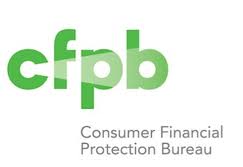Earlier this week the Seventh Circuit Court of Appeals issued its opinion in the consolidated appeals of McMahon v. LVNV Funding, LLC and Delgado v. Capital Management Services, L.P., concerning the collection of time barred debt without the threat of litigation. The result is not good for the credit and collections industry, principally because it further confuses application of the Fair Debt Collections Practices Act across the nation. Background In both cases the debt collectors offered to settle the debts, without mention of a lawsuit or any legal action. Both suits claimed that the letters were false, deceptive and misleading, in violation…
Posts published by “Donald Maurice”
Donald Maurice provides counsel to the financial services industry, successfully litigating matters in the state and federal courts in individual and class actions. He has successfully argued before the Third, Fourth and Eighth Circuit U.S. Courts of Appeals, and has represented the financial services industry before several courts including as counsel for amicus curiae before the United States Supreme Court. He counsels clients in regulatory actions before the CFPB, and other federal and state regulators and in the development and testing of debt collection compliance systems. Don is peer-rated AV by Martindale-Hubbell, the worldwide guide to lawyers. In addition to being a frequent speaker and author on consumer financial services law, he serves as outside counsel to RMA International, on the governing Board of Regents of the American College of Consumer Financial Services Lawyers, and on the New York City Bar Association's Consumer Affairs Committee. From 2014 to 2017, he chaired the ABA's Bankruptcy and Debt Collection Subcommittee. For more information, see https://mauricewutscher.com/attorneys/donald-maurice/
Recent remarks from Consumer Financial Protection Bureau Deputy Director Steven Antonakes indicate that the CFPB remains particularly interested in data integrity during debt collection. Speaking at the National Community Reinvestment Coalition Annual Conference in Washington yesterday, Antonakes said the bureau is “concerned that the accuracy of account information degrades as it passed on from the original creditor to debt collection firms or debt buyers.” Antonakes also suggested that improvements in data integrity will further the bureau’s efforts “to ensure that collectors are seeking to recover debts from the right person in the right amounts.” Concerns over data integrity are consistent with the bureau’s policy statement in its…
A jurist praised by the New York Times for his administration of credit card collection cases was recently the subject of a harsh rebuke from a New York appellate court for the same judicial practices.
The Consumer Financial Protection Bureau today announced that 1st Alliance Lending, LLC, a mortgage lender, was assessed a civil monetary penalty of $83,000, arising from illegally splitting real estate settlement fees. In Yes, the CFPB is Serious About Self-Reporting!, I commented last August that the bureau is encouraging regulated entities to self-report, even if unsure whether their conduct violates law. Previously, self-reporting by US Bank had led the CFPB to forgo imposing a civil money penalty against that institution. While today’s announcement includes a civil monetary penalty, it is small compared to the tens of millions in penalties imposed by the bureau…
For several years my attorney ethics presentations and papers have emphasized that lawyer supervision and particularly non-lawyer supervision, in my experience, is an area of concern for attorneys who practice debt collection law. A recent opinion from New York’s Appellate Division, Second Department, concerning the conduct of a debt collection law firm provides an example of the harm that may result from less than robust supervision of attorneys and non-attorney staff. Attorneys who practice debt collection are probably the most “compliance-aware” branch of lawyers today. They are routinely subject to client audits of their practices’ operations and financial records. Some even have ISO…
Speaking as an invited guest to a conference of the Mortgage Bankers Association yesterday in Orlando, Steven Antonakes, deputy director of the Consumer Financial Services Bureau, told the industry group he was “deeply disappointed” by their lack of progress in improving the mortgage servicing industry. Noting that “too many [mortgage] customers continue to receive erratic and unacceptable treatment,” Antonakes added that “[t]his kind of continued sloppiness is difficult to comprehend and not acceptable.” Pointing to the bureau’s new mortgage rules, which became effective Jan. 10, Antonakes warned the mortgage servicers “it is time for the paper chase to end.” The CFPB’s…
The comment period for the Advance Notice of Proposed Rulemaking concerning the Fair Debt Collection Practices Act has been extended to February 28. Several organizations, including the National Association of Retail Collection Attorneys, had made requests for the extension. We will be presenting a free webinar on the “Repositories” questions posed in the ANPR on January 22. You can find out more about the webinar and how to register here.
I’ll be heading to Park City, Utah this weekend for the Winter Meeting of the American Bar Association’s Consumer Financial Services Committee. The focus of the CFSC is on all things in consumer financial services law — payment systems, deposit accounts, fair lending and yes, debt collection. This meeting is going to feature several panel discussions with officials from the Consumer Financial Protection Bureau and the Federal Trade Commission along with well-known consumer advocates all discussing issues surrounding debt collection. Enforcement actions, the recent ANPR, TCPA litigation and CFPB regulation of attorneys are among the topics we’ll cover. As always, this…
The Consumer Financial Protection Bureau announced today it is seeking comment from the public about debt collection practices as the bureau considers new rules designed to protect consumers “without imposing unnecessary burdens” on the industry, according to the CFPB. The CFPB is gathering information from all sources — consumers, advocates and industry representatives — on a range of issues, including the accuracy of information used by debt collectors, how informed consumers are about their rights, and the methods collectors use to recover their debts. Regarding information accuracy, the CFPB is seeking comments about whether collectors have the correct person, the correct amount and the correct documentation when collecting a debt. The bureau also wants to…
Yesterday JP Morgan Chase Bank, N.A. and certain of its affiliates entered into a sweeping consent order with the Office of the Comptroller of the Currency covering its practices for collecting debt, as well as the practices used by its third-party service providers, including lawyers. According to the consent order (available here), the bank, among other things: caused affidavits to be filed in court where the affiant did not have personal knowledge of the assertions made or had reviewed the relevant books and records; allowed the filing of “inaccurate sworn documents” that resulted in judgments with financial errors in favor of…
Changes to the systems by which banks and other entities (also known as “furnishers”) supply credit reporting agencies with consumer credit information prompted a Bulletin yesterday from the Consumer Financial Protection Bureau emphasizing the greater role it sees documents playing in the consumer credit dispute process. In announcing its expectation that furnishers review “all relevant information” when responding to consumer disputes, the CFPB reiterates what is already required by FCRA’s section 1681s-2(b). When responding to a consumer’s dispute concerning information furnished by it to a credit reporting agency, a furnisher is required, among other things, to “review all relevant information provided by the CRA . . .”…










